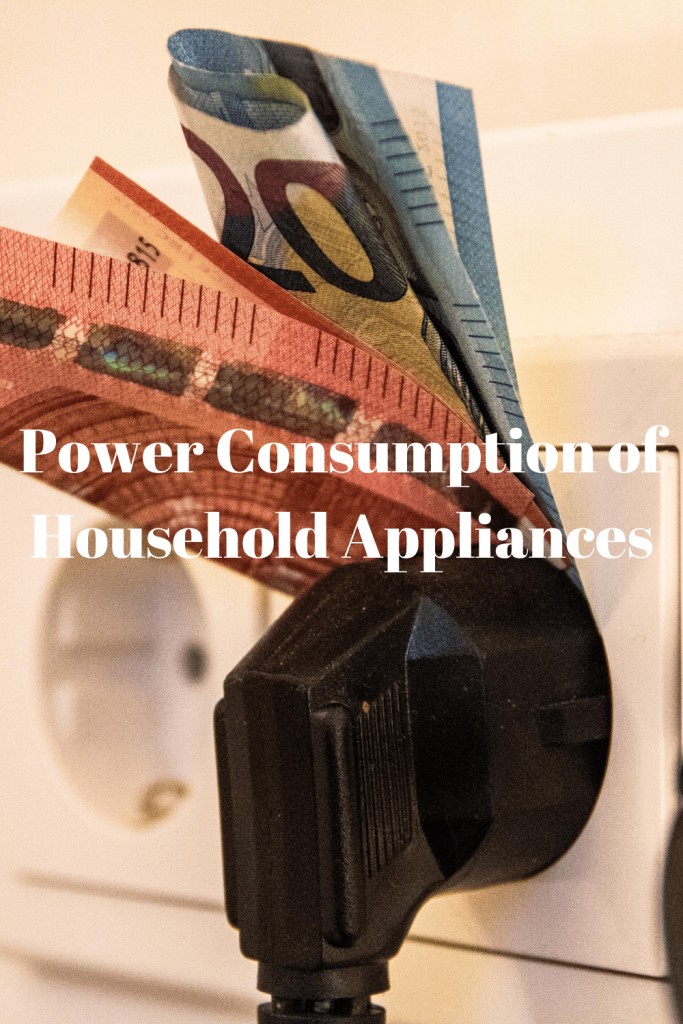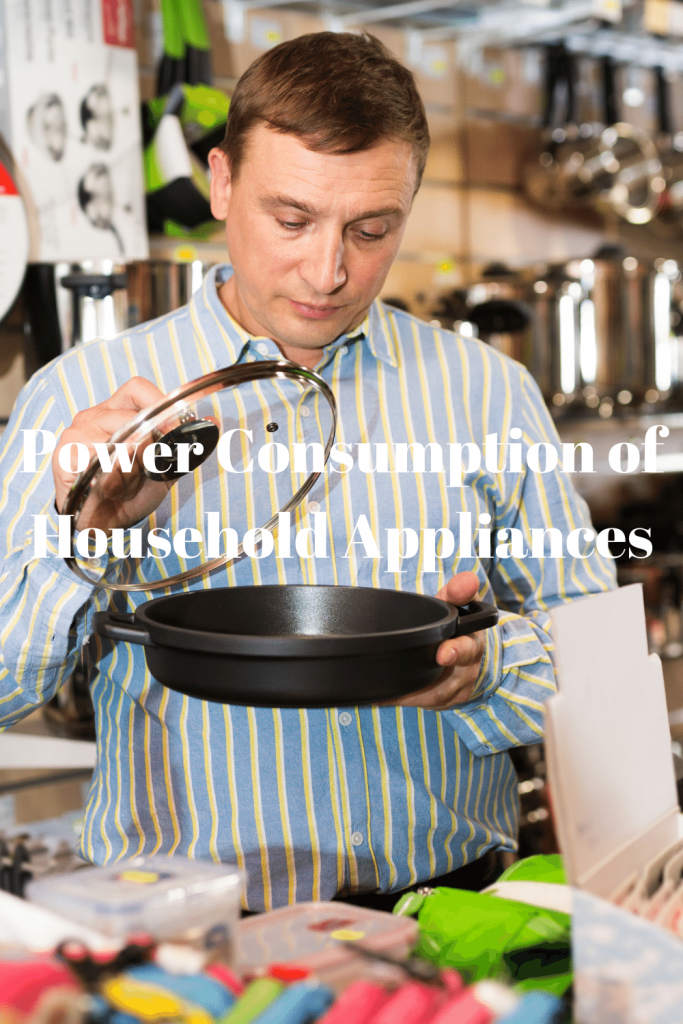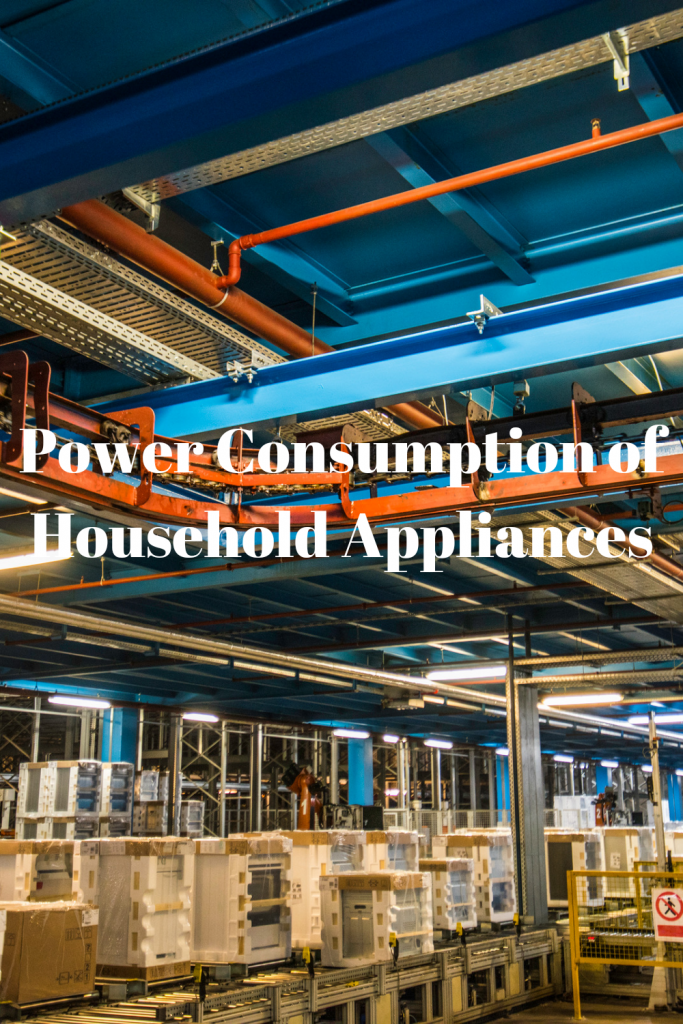Power consumption of household appliances Overview
Electricity bills are something that surprises many homeowners. Most of the time, you won’t know how much you’ve consumed in a month until you receive the energy bill end-month.

And considering the cost per unit of power keeps changing, it’s tough to budget how much you’ll spend on the bills. A small price change could significantly affect your plans. The best thing would be to try and reduce the power consumption of your household appliances.
Here are a few tricks you can try to cut down your home power consumption.
1) Adjust your day-to-day behaviors
Before you can buy energy-efficient household appliances to try to cut down on your home’s energy use, changing your day-to-day behaviors around electrical devices can make a huge difference.
You can start by turning off lights and appliances when they are not in use is a simple way to save energy. You may also save energy by doing some household activities by hand.
An example is hanging your clothes on the line to dry instead of using the dryer or hand-washing your dishes instead of using the dishwasher.

Another way is to turn down the heat on your home heater thermostat in the winter and use the air conditioner less during the summer. Besides this, you can avoid using high-power appliances during peak hours. Enquire with your local power company to know the specific peak hours in your area.
2) Eliminate Vampire Power
Another way to reduce the power consumption of household appliances is to identify energy vampires in your home.
A vampire of energy is a device that continues to consume power even when they are shut off. These appliances and devices include TVs, laptop chargers, phone chargers, cable boxes, and more.
These loads can be prevented from increasing the energy bills by unplugging the device from the power or installing a power strip and using the off button to shut them off completely.
3) Replace the Old Light Bulbs with Energy-Savers
Typical incandescent bulbs waste excessive energy and need to be changed more frequently than their energy-efficient counterparts.
Incandescent halogen lamps, Light-Emitting Diode bulbs (LEDs), and CFLs consume less power, reducing energy consumption from 25% to 80%. They do last way longer than the standard bulbs too.
Although their upfront cost is high, their effective energy utilization and longer lives mean they will save you some energy expenses in the long term.
4) Install a Smart or Programmable Thermostat
You may automatically switch off a programmable thermostat or lower heating and cooling at the time of sleep or departure.
You prevent excessive energy use through heating and cooling without updating your HVAC system by installing a programmable thermostat. Programmable thermostats are available in many types to suit your schedule.
5) Purchase Energy Efficient Appliances
On average, equipment accounts for around 13% of total home energy use. Even while the price of energy-efficient devices might be more significant at an earlier stage, their running expenses are generally between 9 and 25 percent lower than the traditional versions.
When making your home purchases, it’d be best to go for household appliances with an ENERGY STAR label, an essential guarantee that the appliance consumes less energy during use and standby than Standard modeling when you buy an energy-efficient appliance.
Energy savings vary according to the particular device. For example, clothing cleaners with ENERGY STAR certification spend 25% less energy and 45% less water than regular clothing, but refrigerators with ENERGY STAR use just 9% less energy.
6) Cut Down the Water Heating Expenses
If you didn’t know, water heating contributes significantly to your power consumption of household appliances. Besides buying an energy-efficient rated water heater, consider using a low-temperature setting.
You can do this by adjusting the thermocouple down on your water heater or distance the heater’s hot and cold water pipes.

Pro tip: When considering upgrading your water heater with an efficient model, consider the water heater type that meets your water heating requirements and the fuel type it requires.
7) Upgrade Your HVAC system
The heating, ventilation, and air conditioning system consists of an HVAC system. More than 40% of house energy usage is accountable for heating alone. Upgrades to an HVAC-certified ENERGY STAR will decrease your heating cost by up to 12 percent. Improving your energy efficiency might also increase to the third component of an HVAC system – ventilation.
Conclusion
Most people are frustrated with their monthly bills, with energy bills being the most common cause of the frustration. If you apply the above tricks, you can be sure your power consumption of household appliances will reduce, thus cutting down the amount you’ll pay end month.
